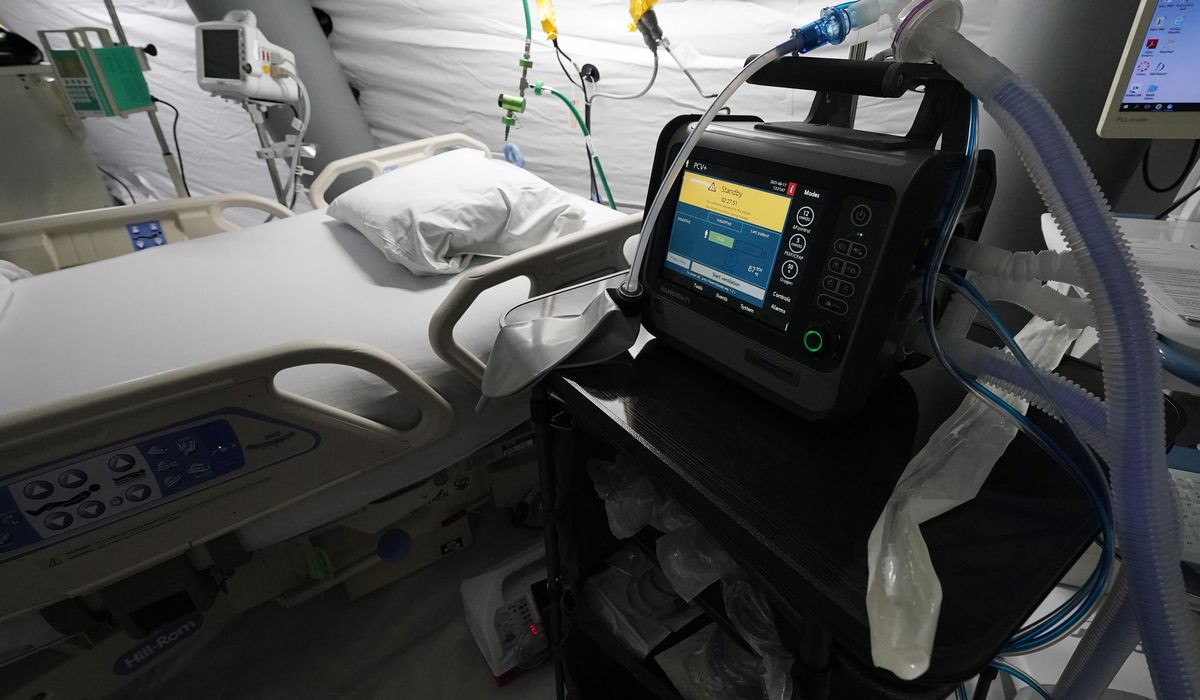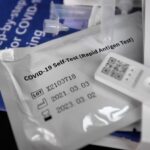
Several Democratic-run states and cities are giving preference to non-White patients for receiving potentially lifesaving treatments for COVID-19, a race-based scheme that legal scholars say is unconstitutional.
Minnesota and New York City are among the latest jurisdictions where health officials are giving priority to people of color for scarce monoclonal antibodies, which can prevent COVID-19 patients from developing severe illness.
In Minnesota, the state health department is using a scoring system that awards points to patients with certain risk factors, such as chronic kidney disease and diabetes. The department’s scoring also gives two points to people with “BIPOC” status — Black, Indigenous or people of color.
White people who have the same risk factors are not given the same priority ranking for the antibody treatments as non-White people with COVID-19. Legal analysts say the approach likely wouldn’t stand up in court.
“It’s very open to constitutional challenge and hard to defend from the state’s point of view,” said Walter Olson, a specialist on constitutional law and public policy at the Cato Institute. “The equal protection clause is at its strictest when it comes to explicit racial classifications made by government in dispensing rights.”
Eugene Volokh, a law school professor at the University of California, Los Angeles, called the schemes unconstitutional.
“Use of race as a proxy for supposed greater risk — instead of focusing on the more directly relevant factors (‘race-neutral alternatives,’ in doctrinal terms), such as underlying medical conditions, vaccination status, lack of access to good alternative care or the like — would violate the Equal Protection Clause in this situation,” Mr. Volokh wrote in Reason magazine. “If the [Health] Department is concerned about underdiagnosis of health conditions, it could certainly provide funds to make sure that eligible patients are properly diagnosed; but it can’t just use being non-white or Hispanic as a stand-in for such supposed underdiagnosis.”
In New York, the state health department issued a memo on Dec. 27 stating that non-Hispanic Whites with COVID-19 can get oral antivirals only if they have medical conditions or unspecified “other factors that increase their risk for severe illness.” Sick non-White and Hispanic people don’t face the same requirements to qualify for the treatment.
Citing disparities of access to the health care system, the department said race can be used as a critical qualifier.
“Non-white race or Hispanic/Latino ethnicity should be considered a risk factor, as longstanding systemic health and social inequities have contributed to an increased risk of severe illness and death from COVID-19,” the memo stated.
White people with COVID-19 can receive monoclonal antibody treatments, but only if they show medical conditions that increase their risk for severe illness. Non-White patients in New York are automatically eligible for the treatments.
In September, the Biden administration imposed limits on access to antibody treatments as demand increased, primarily in seven Southern states. Mississippi Gov. Tate Reeves, a Republican, said last week that his state is facing a shortage of monoclonal antibodies to treat those infected with the delta variant of the coronavirus, and he accused the Biden administration of refusing to help.
“We need more testing from the federal government. We need more monoclonal antibodies allocations from the federal government,” Mr. Reeves said. “And that’s what we’ve been begging them to send us, much to no avail, for the last 10 days.”
New York City also has said it will take a patient’s race into account when distributing potentially lifesaving COVID-19 treatments. The Department of Health and Mental Hygiene said on its website last month that the city will “consider race and ethnicity when assessing individual risk.” It said “longstanding systemic health and social inequities” can increase the risk of death from COVID-19.
The guidance applies to the distribution of monoclonal antibodies and oral antivirals such as Paxlovid and molnupiravir, the New York Post reported.
“New Yorkers of color have borne the brunt of this pandemic due to structural racism and the legacy of disinvestment in many minority communities,” city health department spokesman Michael Lanza told the Post. “Doctors are advised to consider the disproportionate impact felt by these communities in addition to systemic health disparities when prescribing treatments for people who are at highest risk for severe COVID-19 outcomes.”
The paper also cited an unidentified physician from Staten Island who complained that a pharmacist asked about the race of two of his patients before filling Paxlovid prescriptions for them. Both patients, who were White, did receive the treatments.
Andrew Giuliani, a Republican candidate for governor of New York, said the race-based policy in a Democratic-controlled city and state is “a politically motivated narrative.”
“They are not treating everybody equally,” Mr. Giuliani said in an interview. “This should be based off of risk factors. It should be based off of age, and if someone is immunocompromised, or obesity levels. The fact that they’re taking race as a primary factor in this, I think is absolutely absurd.”
Vermont Gov. Phil Scott, a Republican, announced in April that anyone 16 or older who identified as Black, Indigenous or a person of color (BIPOC) could get a COVID-19 vaccine.
State Health Commissioner Mark Levine said at the time that people of color were prioritized for the vaccine because of their higher rates of COVID-19 and lower rates of vaccination.
The Centers for Disease Control and Prevention said in a Nov. 30 memo that the COVID-19 pandemic “has brought social and racial injustice and inequity to the forefront of public health.”
“It has highlighted that health equity is still not a reality as COVID-19 has unequally affected many racial and ethnic minority groups, putting them more at risk of getting sick and dying from COVID-19,” the agency said. “The term ‘racial and ethnic minority groups’ includes people of color with a wide variety of backgrounds and experiences. Negative experiences are common to many people within these groups, and some social determinants of health have historically prevented them from having fair opportunities for economic, physical, and emotional health. Social determinants of health are the conditions in the places where people live, learn, work, play, and worship that affect a wide range of health risks and outcomes.”
CDC data shows that the vaccination rates of Black and Hispanic people are lower than for Whites. The agency said 58% of White people have received at least one COVID-19 vaccine dose, compared with 56% of Hispanic people and 51% of Black people. Critics say vaccination status, not race, should be the determining factor in treatments.
The controversy is not limited to blue states. In November, Republican gubernatorial candidate Don Huffines accused Texas agencies under the administration of Republican Gov. Greg Abbott of discriminating against White and Asian Americans who need monoclonal antibodies.
“If I was governor, we would not be allowing these racist policies in Texas,” Mr. Huffines said in a statement. “Policies that discriminate against Texans will immediately cease when I am governor.”
Texas officials deny using any race-based policy in delivering COVID-19 treatments. Chris Van Deusen, a spokesperson for the Texas Department of State Health Services, told USA Today in November that any person of any race with a doctor’s prescription is eligible to receive monoclonal antibody treatment.
Mr. Abbott, who was treated with Regeneron’s monoclonal antibodies in August after testing positive for COVID-19, announced on Dec. 31 that Texas had requested more federally supported testing locations and medical personnel and “additional federal allocations of monoclonal antibodies.”
“Detecting COVID-19 and preventing COVID-related hospitalizations are critical to our fight against this virus,” Mr. Abbott said in a statement. “While the Biden administration has cut supplies of monoclonal antibody treatments and testing kits when they are needed most, the state of Texas is urging the federal government to step up in this fight and provide the resources necessary to help protect Texans. Testing sites, additional medical staff, and continued shipments of therapeutics from the federal government will help us continue to save lives and mitigate the spread of COVID-19.”
For more information, visit The Washington Times COVID-19 resource page.








